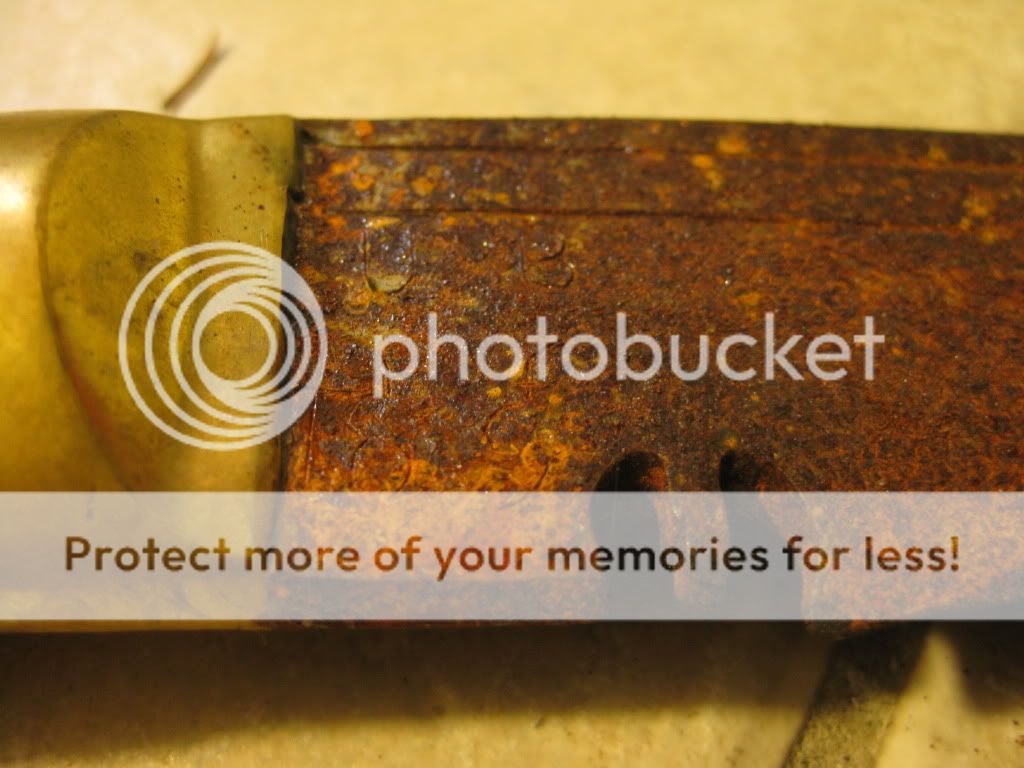- Joined
- Jun 3, 2012
- Messages
- 1,118
A while ago I lost my 18inch Ang Khola, and thought it was gone forever. We got some sunlight today so I decided to do a little storage shed cleaning. I came across it while moving some boxes (stoked). I guess I had set it down in there after doing some chopping, and couldn't remember where it was for a few months. Unfortunately, unbeknownst to me the roof was very leaky this year and the Ang Khola happened to be in the rite place at the wrong time. It got drenched. Ohh well. Any Ideas how to get the rust off without affecting the wood handles?








